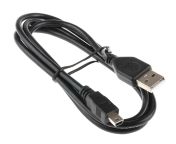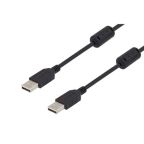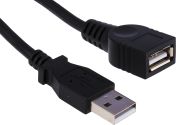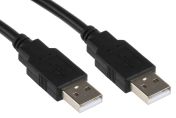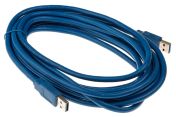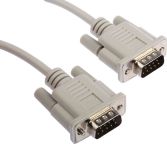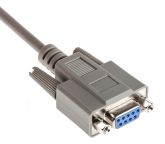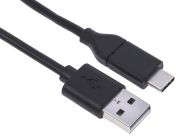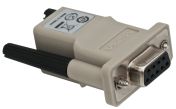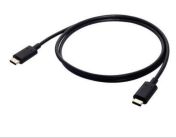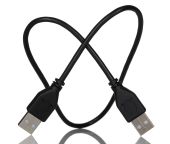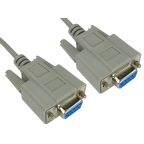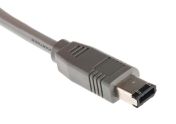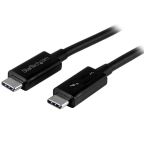RS Australia offers a wide range of computer cable assemblies to suit any electronic application or need. Choose from parallel, SCSI, serial, KVM, and USB types, among many others, sourced from leading brands like Roline, FTDI Chip, Molex, Bulgin, Harting, and our own RS PRO.
What are Computer Cables and Computer Cable Assemblies?
Computer cables are the lifelines of modern technology, enabling the seamless flow of data and power between various devices. They serve as the conduits for information exchange, powering peripheral, and connecting systems, making them necessary in today’s digital landscape.
A computer cable assembly is a collection of individual wires or cables bundled together into a single, organised unit. These assemblies may include both data cables, which carry informational signals between devices, and power cables, which supply electricity to operate them. Encasing multiple cables within a protective sleeve streamlines installation, simplifies maintenance, and prevents tangles, ensuring optimal organisation and longevity.
Types of Computer Cables Assemblies
Computer cable assemblies are available in a variety of types, each designed for specific purposes and connectivity needs. Let's explore some of the most common types:
USB Cables and USB Extension Cables
USB cables allow for simple "plug & play" connections for devices such as keyboards/mice, digital cameras, and printers. On the other hand, USB extension cables allow extending other cable types to compatible USB cables. For example, you can find USB extension cables that can create a link in between a parallel port and a USB port.
SATA Cables
SATA (Serial ATA) cables are quite useful with data transfer. When you need to connect your hard drive with the motherboard, you may think about using a SATA cable to get the job done. These cables usually offer data transfer speeds of 150 Mbps and above.
Digital Video & Monitor Cables
Digital video and monitor cables facilitate connections between computers or other devices and visual displays. These cables support various display standards and resolutions, ensuring optimal image quality for your applications.
KVM Mixed Cables
KVM (Keyboard, Video, and Mouse) mixed cables allow users to control multiple computers with one keyboard, video monitor, and mouse set. The user would have a KVM switch to swap from one computer to the next.
Serial Cables
Serial cables, utilising serial communication protocols, are primarily used for connecting legacy devices or industrial equipment that require serial communication. RS-232 cables are the most common type of serial cable, offering reliable data transfer between devices like computers, printers, and PLCs.
Parallel Cables
Parallel cables, while less common today, were once used for connecting computers to printers and other peripherals. They enable simultaneous transfer of multiple data bits, offering faster data transfer rates compared to serial cables.
SCSI Cables
SCSI (Small Computer System Interface) cables connect SCSI devices, such as hard drives and tape drives, to SCSI controllers. These cables can be flat and wide or round, and they often support multiple device connections with a single cable.
Computer Power Cables
Computer power cables supply electricity to various components within a computer system. These cables connect power supplies to the mains power outlet, as well as monitors and other peripherals to their respective power sources.
Different Kinds of Firewire Cables
Firewire cables, also known as IEEE 1394 cables, provide high-speed data transfer for various devices, particularly in audio and video applications. They are also utilised in industrial settings for connecting equipment, sensors, and control systems.
IEEE 1394 Firewire Cables
IEEE 1394 is the official standard for Firewire cables. These cables come in various speeds, including 100, 200, and 400 Mbps, and are commonly used for connecting digital camcorders, external hard drives, and other high-bandwidth devices.
6-Pin Firewire Cables
6-pin Firewire cables are the most common type, featuring six pins for power and data transmission. They are widely used for connecting consumer electronics like digital cameras and camcorders.
6-Pin to 6-Pin Firewire Cables
These cables connect two devices with 6-pin Firewire ports, allowing for high-speed data transfer and device communication.
Firewire to Firewire Cables
Firewire to firewire cables, available in different pin configurations, allow for connections between various Firewire-enabled devices, ensuring seamless data transfer and device compatibility.
Firewire 6-Pin Cables
Similar to 6-pin to 6-pin Firewire cables, these cables are designed for devices with 6-pin Firewire ports, offering reliable data transfer and power delivery for compatible equipment.
Applications of Computer Wires
Computer cables and wires are vital for connectivity across various industries, facilitating communication, data transfer, and power distribution.
- Discrete Manufacturing: In manufacturing environments, computer cables connect industrial PCs, PLCs, HMIs, and other automation devices, enabling data exchange, control, and monitoring of production processes.
- Process Manufacturing: Computer cables are utilised in process control systems to transmit signals between sensors, actuators, and controllers, ensuring precise monitoring and control of industrial processes.
- Energy & Utilities: In the energy sector, computer cables connect various components of power generation, transmission, and distribution systems, facilitating communication, data acquisition, and remote monitoring.
- Facilities & Intralogistics: Computer cables play a crucial role in building automation systems, connecting sensors, controllers, and other devices to manage lighting, HVAC, security, and other critical infrastructure. They also enable communication and data transfer in material handling equipment and logistics systems, optimising warehouse operations.
Difference between Computer Wires and Computer Plugs
While often used interchangeably, computer wires and computer plugs (or connectors) serve distinct functions within a connection system:
- Computer Wires: These are the actual conductors that carry electrical signals or power. They are typically insulated and bundled together within a cable assembly.
- Computer Plugs/Connectors: These are the interfaces that attach to the ends of computer wires, allowing them to connect to devices or other cables. Common types of computer plugs include USB, HDMI, Ethernet, and D-subminiature connectors.
Types of Computer Plugs
- USB: Universal Serial Bus (USB) connectors are widely used for connecting various peripherals to computers.
- HDMI: High-Definition Multimedia Interface (HDMI) connectors transmit high-quality audio and video signals.
- Ethernet: Ethernet connectors enable network connectivity between devices.
- D-subminiature: These connectors, including DB9 and DB25, are commonly used for serial communication.
Trusted Computer Cables Manufacturer, Supplier & Distributor in Australia
RS is a leading supplier and distributor of computer wires and cables in Australia. We offer a vast selection of high-quality cables from renowned brands like Belden, Lapp Group, and RS PRO, catering to a wide range of industrial and electronic applications.
Buy Computer Cables from RS
RS Australia offers swift delivery of computer cables and other connectivity solutions like cable ties and cable glands. For more information on our delivery services and fees, please refer to our Delivery page.










